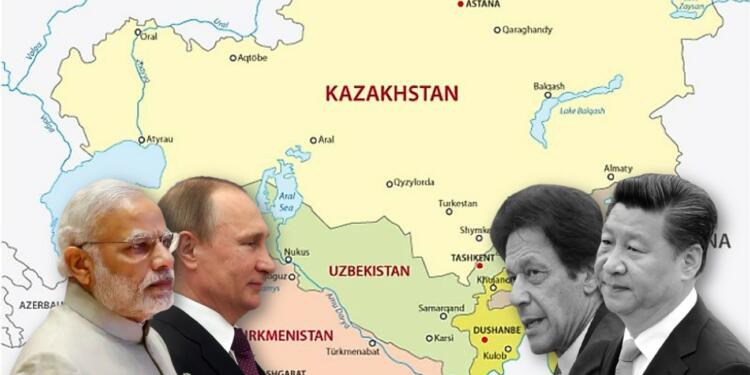India is now further expanding its presence and influence in Central Asia. As per the ET, India and Russia are close to signing joint defence projects in Central Asia which will be worked upon through existing Soviet-era defence factories in the Central Asian republics.
This is a strong power move. With this, India is making it clear that it won’t let China and Pakistan gobble up the increasingly important region. Russia, on the other hand, gets a reliable partner in a region which has traditionally been a part of Moscow’s privileged sphere of influence.
India and Russia exploring joint projects in Central Asia
ET has claimed to have learnt that India and Russia exchanged a non-paper on bilateral engagement and exploration of joint projects in Central Asia. As a part of such discussions, the two countries also exchanged ideas about setting up joint production to meet local as well as India’s demands.
Earlier, India also invited the leaders of the five Central Asian republics as chief guests for its Republic Day celebrations on January 26 next year.
Why Central Asia is important?
While Central Asia is a lesser-known region of the world. India understands its importance. Firstly, the region is laced with minerals like rare earth elements that will play a crucial role in the world’s quest to adopt cleaner technologies and dump fossil fuels.
Read More: Central Asia is sitting on a treasure trove that will decide the world’s future
And secondly, the region is strategically located, being the centre of the ‘Great Game’ that existed between the Russian Empire and the British Empire in the 19th century. And today, it abuts Afghanistan, China, and Russia, and is also located close to India. India’s Prime Minister Narendra Modi has described it as a part of India’s extended neighbourhood.
The Pakistan-China axis
Pakistan has always eyed Central Asia as a shortcut to achieving its little superpower ambitions. Pakistan uses its influence with the Taliban to control the war-ravaged nation of Afghanistan. And now through Afghanistan, it wants to control entire Central Asia.
Pakistan wants to mainstream the Taliban and emerge as the main force driving Muslim brotherhood in Central Asia and South Asia. Ultimately, Pakistan wants to radicalise the region, which is predominantly Muslim, just like it used the Taliban to radicalise Afghanistan and grab the rich mineral resources of the Central Asian republics.
Pakistan also thinks that it can expand its Islamist terror network deep into Central Asia, thereby creating a new terror threat for India and the world at large.
On the other hand, China views Central Asia as a leading destination for its Belt and Road Initiative (BRI) investments. Again, China has similar plans- looting Central Asia’s wealth and using the strategically located region to bully others. China has the money and Pakistan has the muscle, which creates a nexus of sorts.
Cancelling the Pakistan-China nexus
And this is exactly where India comes into the picture. Prime Minister Modi understands that the Taliban has come to power in Afghanistan with Pakistan’s aid, and Islamabad wants to do something similar in Central Asia. However, PM Modi also knows that the Central Asian republics maintain good post-Soviet ties with Moscow.
Central Asia refuses to play into the hands of Islamabad and Beijing. And despite all their efforts, the Central Asian leaders have stuck with Russia, while getting friendlier with New Delhi. In fact, Central Asian republics reject terrorism, and they also reject Pakistan’s version of Islam, which tends to be fundamentalist and radical in character.
Also Read: Backed by Russia and India, Central Asia is holding China’s BRI to ransom
Central Asian leaders want to save their secular societies from Pakistan’s radical Islam, and this is why they keep getting friendlier with India. Central Asian republics are also wary of growing Chinese influence in the region. They have pushed back against China’s unfair policies under the BRI projects and are ready to collaborate with India across several sectors like IT, education, pharmacy, and healthcare.
India is driving its diplomacy on the Central Asian sentiment against China and Pakistan. This benefits Russia too, which views India as a reliable partner to cancel the China-Pakistan axis.


























In any talk of influencing Central Asia, one must understand that India has no direct land route to it. If you can’t even get to Central Asia then it becomes difficult to make any large scale plans for it.
India is trying to build links through Iran but that is unreliable. Russia is the only secure way to get to Central Asia.
India continues to being sliced in terms of land mass from all sides due to Islam. Having already lost Iran, Pakistan, Afghanistan, Bangladesh, and perhaps many more regions, today we are at mercy of Islam completely if we want to connect with the rest of the world through land route. China blocks an entire side for us. It is a hopeless situation really. We should be reclaiming what is lost not through wars but by propagation of religion, philosophy, fearless debates, social media, awareness.